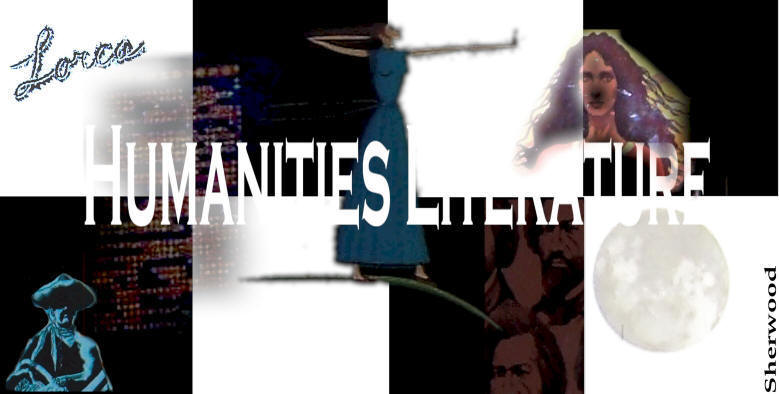|
|
||
|
|
Brothers, Brotherhood Identity - Individuality - Difference Who's in and Who's Out |
|
|
When does race make a difference? When
does the narrator claim membership, when not? When do others accept his
commonality, when not? When does it appear as a gap or barrier? When do
other dimensions of subjectivity (like gender, region, class, or education)
trump race? What does the novel suggest, at this point, about the narrator's
identity problems? Do his altered relationships to groups seem to bring him
closer to an identity?
|
||
| 1 |
C9 "Hell, ain't nobody out here this morning but us colored--Why you trying to deny me?" (173) |
|
| 2 |
God damn, I thought, they're a hell of a people! And I didn't know whether it was pride or disgust that suddenly flashed over me. (177)
|
|
| 3 |
C13 "They're my birthmark," I said. "I yam what I am!" (266) ... What and how much had I lost by trying to do only what was expected of me instead of what I myself had wished to do? |
|
| 4 |
I wanted to leave, but was too ashamed to leave, was rapidly becoming too much a part of it to leave. (271) .... And it was as though I myself was being dispossessed of some painful yet precious thing which I could not bear to lose .... (273) |
|
| 5 |
"No, no," I heard myself yelling. "Black men! Brothers! Black Brothers! That's not the way ... We're a law-abiding and a slow to anger people."(275) |
|
| 6 |
"Who are those people?" I called from the steps ... "We're friends of the people," one of the white men called. "Friends of what people?" I called, prepared to jump on down upon him if he answered, "You people." "We're friends of all the common people," he shouted. "We've come to help." "We believe in brotherhood," another called. (283) |
|
| 7 |
"But you were concerned with that old couple," he said with narrowed eyes. "Are they relatives of yours?" "Sure, we're both black," I said, beginning to laugh. He smiled,
his eyes intense upon my face. "Sure, we
were burned in the same black oven," I said. "What other terms do you know?" I said, puzzled. (292) |
|
| 8 |
C14 "But don't you think he should be a little blacker?" "Shhh, don't be a damn fool," Brother Jack said sharply. "We're not interested in his looks but in his voice.... So she doesn't think I'm black enough. What does she want, a black-face comedian?... Maybe she wants to see me sweat coal tar, ink, shoe polish, graphite. What was I, a moan or a natural resource? (303) |
|
| 9 |
"This is your new identity," Brother Jack said. "Open it." Inside I found a name written on a slip of paper. "That is your new name," Brother Jack said. "Start thinking of yourself by that name from this moment...." (309) |
|
| 10 |
"How about a spiritual, Brother? Or one of those real good ole Negro work songs?.... "The brother does not sing!" Brother Jack roared staccato. "Nonsense, all colored people sing." "This is an outrageous example of unconscious racial chauvinism!" Jack said. (312) . . . . Was it that she understood that we resented having others think that we were just entertainers and natural singers? But now after the mutual laughter something disturbed me: Shouldn't there be some way for us to be asked to sing? Shouldn't the short man have the right to make a mistake without his motives being considered consciously or unconsciously malicious? After all, he was singing, or trying to. What if I asked him to sing? (314) |
|
| 11 |
C 15 "I mean you," she called. "Come on back an' get your trash. An' don't ever put trash in my can again!"... "We keep our place clean and respectable and we don't want you field niggers coming up from the South and ruining things," she shouted with blazing hate. . . . "What does it matter, Miss?" I called up to her. When the collectors come, garbage is garbage. ... I didn't know that some kinds of garbage were better than others." (328) |
|
|
|
||
|
Courses |
Sherwood |IUP
English |
IUP |
||
